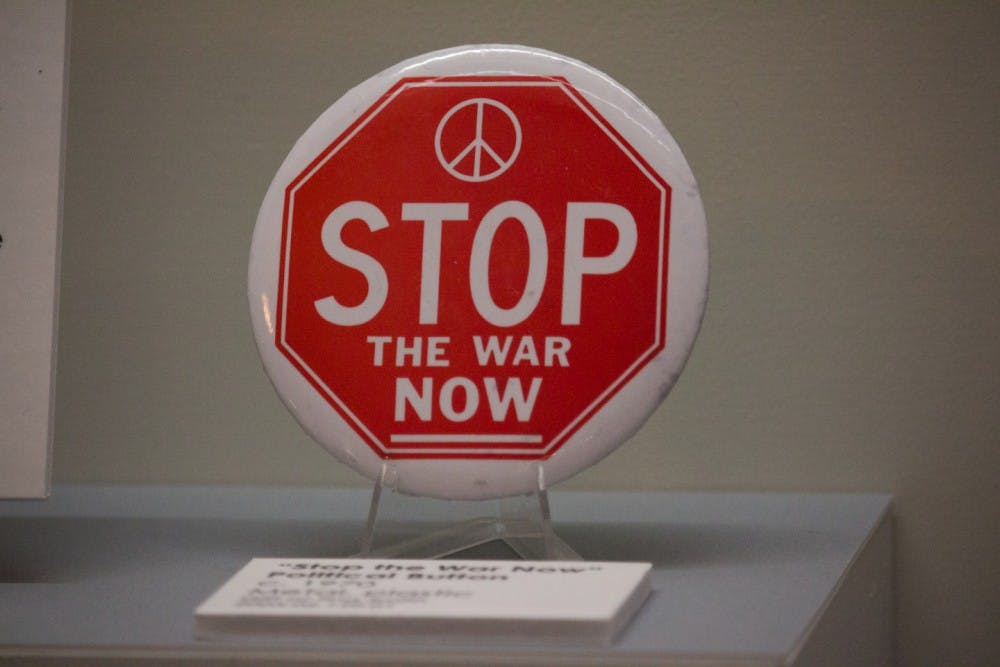In a world with 24-hour news cycles and reactionary social media, politics have almost become taboo. USC’s J. Rion McKissick Museum attempts to combat the idea that all political discussions must be us-versus-them with its latest exhibit, "Hot Buttons: Political Issues in The United States."
The exhibit explores political issues that have influenced voters in the past — war, corruption, the environment and racism to name some — and those issues are examined or highlighted through items like T-shirts, bobbleheads and buttons.
Kate Crosby, who received her M.A. in public history and her Museum Management Certificate from USC in 2015, currently serves as McKissick Museum’s Curator of Exhibitions. She was tasked with putting the exhibit together.
“When I was hired, we had a spot that basically just said ‘politics, second floor lobby,’ and that was all it said,” Crosby said. “So, I kind of took point on this.”
Crosby knew she did not want to create an exhibit highlighting the divide between candidates or political parties, especially after 2016’s contentious election. Instead, she wanted to focus on the issues that underlie voters’ decision-making and the ways in which those issues have shaped political parties.
The issues selected for the exhibition were chosen with the intention of sparking conversation among visitors, she said.
“It’s a great conversation starter,” Crosby said. “If you have questions about what people think or why people want to vote a particular way, we tried to have some interpretive labels that really explain some of the buttons that aren’t completely obvious.”
One such item, a pair of John Kerry flip-flops, reference Kerry’s 2004 campaign in which he was accused of flip-flopping his position on various issues. Without the context provided by the label, this cultural reference may not have been understood by visitors too young to remember the election.
“Those make a lot of sense to people who were around then and paying attention, but ... you kind of need the history lesson to know why flip-flops in particular are pretty funny for that object,” Crosby said.
Indeed, the exhibit provides notecard-sized history lessons dating back to World War I that delve into various time periods in American history, piecing together the evolution of politics as new and pressing issues found their way into relevance. The memorabilia also branch out from the typical two-party system, including items that shed light on third party influences as well.
The items on display are thanks in large part to the South Carolina Political Collections. Whereas they tend to hold on to the papers and documentation of events, McKissick is often given the three-dimensional objects that are found in the Hot Buttons exhibit.
In fact, McKissick has received so many donations over the years that many items had to be held from the exhibit. The additional items, however, allow for the potential of a follow-up exhibit in the future, accompanied by previously unexplored issues.
“These are issues that continue to motivate people to go vote, to go be involved,” Crosby said. “So, I think it’s really interesting to think about how have people in the past looked at this issue versus how people now look at this issue.”
The exhibit will be on display Mondays through Saturdays from Jan. 14 through June 13.

